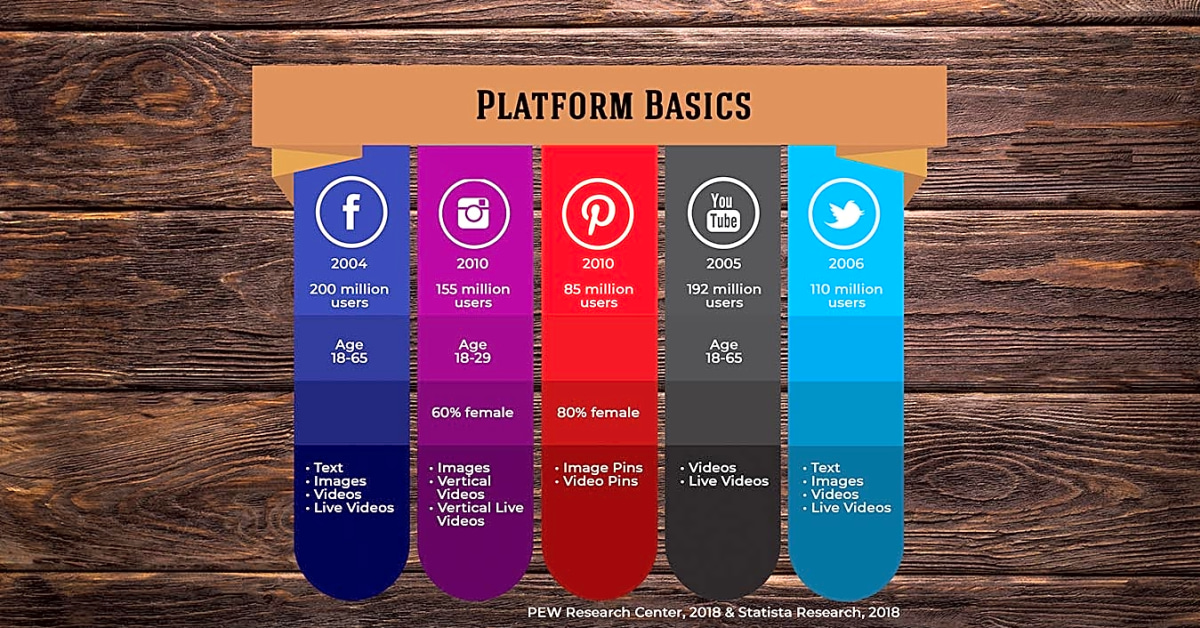Creating engaging content for social media is crucial for any successful online marketing strategy. In today’s digital landscape, social media has become a powerful tool for businesses to connect with their target audience and build brand awareness. However, with millions of posts being shared every day, it can be challenging to stand out and capture the attention of your audience. That’s where the art of creating engaging content comes into play. By understanding the strategies and techniques behind effective operational leadership, you can elevate your social media marketing game and drive more engagement, leads, and conversions. In this article, we will dive deep into the world of content marketing and social media marketing to explore how you can create irresistible content that resonates with your audience and drives results. So, if you’re ready to take your social media presence to the next level, keep reading!
To capture readers’ attention and effectively cover the main search intent, it is important to understand the key aspects of operational leadership that people are searching for. These include strategies and techniques for effective management and team building, ways to improve organizational efficiency and performance through problem solving and decision making, and tips on process improvement and becoming a better leader in business operations.
In today’s competitive business landscape, having strong operational leadership skills is essential for success. However, simply possessing these skills is not enough – it is important to also effectively communicate and engage with your team and stakeholders. This is where social media comes into play. By creating engaging content on social media platforms, you can not only showcase your leadership abilities, but also improve your organizational efficiency and performance.
Effective management and team building are crucial components of operational leadership. Without a strong team, it is difficult for any leader to achieve their goals and drive success in their organization. Therefore, it is important to have strategies and techniques in place for effective management and team building. This includes clear communication, setting achievable goals, delegating tasks, providing feedback, and fostering a positive work environment.
Problem solving and decision making are also key skills for operational leaders. In today’s fast-paced business world, problems and challenges are bound to arise. It is important for leaders to have the ability to identify issues, analyze them, and make informed decisions to overcome them. This not only improves organizational efficiency, but also showcases effective leadership to the team.
Furthermore, process improvement is essential for any business looking to stay competitive and maintain long-term success. As an operational leader, it is important to constantly evaluate processes and look for ways to improve them. This could include streamlining processes, implementing new technology, or adjusting workflows. By continuously improving processes, leaders can create a more efficient and effective organization.
Becoming a better leader in business operations also involves developing soft skills such as communication, empathy, and adaptability. These skills not only help leaders effectively manage their team, but also foster a positive work culture and build strong relationships with stakeholders. Additionally, being open to learning and continuously seeking opportunities for growth is important for any leader looking to improve their operational leadership skills.
Improving Organizational Efficiency and Performance Through Problem Solving and Decision Making
Effective problem solving and decision making are essential skills for operational leaders. In today’s fast-paced business environment, organizations are constantly faced with challenges and obstacles that require quick and effective resolutions. By honing your problem solving and decision making skills, you can improve your organization’s efficiency and performance.
Data analysis is a key component of problem solving and decision making. By gathering and analyzing data, you can identify patterns and trends that will help you make informed decisions for your organization. Critical thinking is also crucial in this process, as it allows you to approach problems from different angles and come up with creative solutions.
Having a decision-making framework in place can also greatly improve your organizational efficiency. This involves having a clear process for making decisions, including setting goals, evaluating options, and considering potential outcomes. By following a structured framework, you can make decisions more efficiently and effectively.
Tips on Process Improvement and Becoming a Better Leader in Business Operations
In order to continuously improve processes and become a better leader in business operations, it is crucial to stay updated with industry trends and seek feedback from team members. By staying informed about the latest developments in your industry, you can identify areas for improvement and stay ahead of the competition.
Additionally, it is important to actively seek feedback from your team members. This not only helps to improve processes and operations, but also fosters a sense of collaboration and teamwork within your organization. By listening to and implementing suggestions from your team, you can create a more efficient and effective operation.
Implementing continuous improvement practices is also essential for becoming a better leader in business operations. This involves regularly reviewing processes and procedures, identifying areas for improvement, and implementing changes to increase efficiency and productivity.
Strategies and Techniques for Effective Management and Team Building
In today’s fast-paced business world, effective management and team building skills are crucial for success. A good manager not only has strong leadership abilities, but also knows how to effectively communicate with their team and resolve conflicts. Here are some key strategies and techniques that can help individuals become better managers and build strong teams:Effective Communication: Communication is the key to successful teamwork. A good manager should be able to clearly convey their expectations, goals, and feedback to their team. This includes both verbal and written communication, as well as active listening and providing timely and constructive feedback.Delegation: Delegating tasks and responsibilities is an important skill for managers. It allows them to focus on bigger picture tasks while also empowering their team members. Delegation also helps in building trust and increasing efficiency within the team.Conflict Resolution: Conflicts are bound to arise in any team. A good manager should be able to handle conflicts effectively and find solutions that work for everyone involved. This can include using active listening, understanding each person’s perspective, and finding a compromise.Motivational Techniques: Keeping the team motivated is essential for productivity and success. A good manager should be able to identify what motivates each team member and use different techniques to keep them engaged and driven. This can include setting achievable goals, recognizing and rewarding hard work, and providing opportunities for growth.By incorporating these strategies and techniques into their management style, individuals can become more effective leaders and build strong, cohesive teams. This not only improves organizational efficiency, but also creates a positive work culture that fosters growth and success.
By incorporating these key points in your social media content, you can effectively capture the attention of readers who are searching for information on operational leadership. By providing valuable insights and tips, you can position yourself as a thought leader in this field and attract potential clients or business opportunities.







